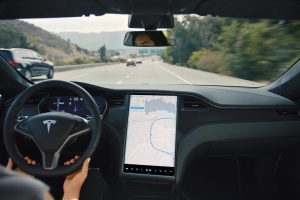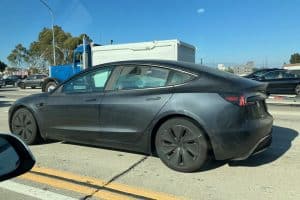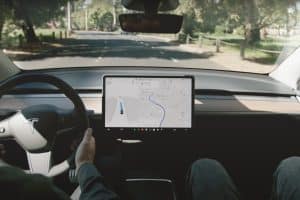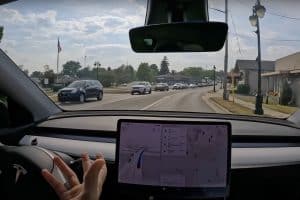- 🚀 Tesla’s shares have increased significantly following the announcement of FSD expansion plans in Europe and China.
- 🌐 The rollout of Full Self-Driving features is anticipated in Q1 2025, contingent on regulatory approvals in both regions.
- 📈 This expansion is seen as a positive growth driver for Tesla, boosting investor confidence.
- 🤝 Tesla is actively engaging with Chinese and European officials to facilitate the regulatory approval process.
- ⏳ Investors are cautious due to Tesla’s previous delays in project timelines.
The electric vehicle giant Tesla has once again captured the attention of the global market, as its shares surged on the announcement of plans to expand Full Self-Driving (FSD) technology into Europe and China by the first quarter of 2025. This strategic move not only highlights Tesla’s ongoing commitment to innovation but also presents a host of opportunities and challenges in its bid to further solidify its position as a leader in the autonomous vehicle industry.
The Expansion Announcement: A Game-Changer for Tesla
Tesla’s latest announcement has sparked excitement and speculation among investors, customers, and industry enthusiasts alike. The company’s shares experienced a significant uptick following the news, reinforcing the belief that expanding the FSD suite into Europe and China could act as a major growth catalyst. The announcement indicates a timeline of early 2025 for the rollout, though it remains subject to obtaining necessary regulatory approvals — a crucial consideration that Tesla must navigate carefully.
Regulatory Hurdles: Navigating Complex Landscapes
Europe’s Regulatory Landscape
In Europe, Tesla faces a well-established regulatory structure focused on safety and compliance. Over the years, European regulators have shown a cautious approach toward autonomous driving technologies, emphasizing stringent testing and thorough validation processes. While the discussions around Driver Control Assistance Systems (DCAS) look promising, Tesla’s success will largely depend on its ability to meet these rigorous standards and potentially collaborate with European authorities to facilitate a smooth regulatory approval process.
The Challenges in China
China presents a unique set of challenges and opportunities. As one of the largest automotive markets, it is highly competitive with domestic companies making strides in electric and autonomous vehicles. However, regulatory barriers and strict oversight pose significant hurdles for foreign entities like Tesla. Ongoing dialogues with Chinese officials are crucial for expediting approvals and navigating the intricacies of China’s regulatory framework.
Impact on Shareholder Confidence and Market Dynamics
Investor Enthusiasm and Caution
The prospect of FSD expansion into new markets has been met with optimism among investors, reflected by the spike in Tesla’s stock value. Analysts view this development favorably, underscoring the potential for increased market share and revenue streams. However, past experiences highlight the need for cautious optimism. Tesla’s history of timeline delays serves as a reminder that while the potential is vast, the execution remains a challenge that can affect investor sentiment.
Advantages of FSD Expansion
- Technological Leadership: By breaking into new markets, Tesla strengthens its reputation as a pioneer in self-driving technology.
- Enhanced Data Collection: More regions enable Tesla to accumulate vast amounts of driving data, enhancing the performance and safety of its FSD suite.
- Diversified Market Presence: Entering Europe and China not only diversifies Tesla’s consumer base but also mitigates risks associated with market-specific downturns.
Considerations for the Future
For Tesla, expanding its FSD capabilities globally requires more than technological superiority; it involves building bridges with regulatory bodies, engaging with local markets, and adapting to diverse consumer dynamics. Success in Europe and China could pave the way for further global expansion and reinforce Tesla’s status as an autonomous technology leader. However, meticulous planning and execution are imperative to overcome the regulatory and logistical complexities inherent in such an endeavor.
Conclusion
Tesla’s plan to expand its Full Self-Driving features into Europe and China marks a pivotal moment in the company’s growth trajectory. As the world watches closely, Tesla’s ability to navigate regulatory hurdles, maintain investor confidence, and deliver on its ambitious timelines will undoubtedly shape the future of self-driving technology. The road ahead is lined with both opportunities and challenges, but with careful strategy and execution, Tesla could turn this expansion into another chapter of success.





